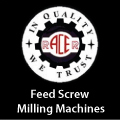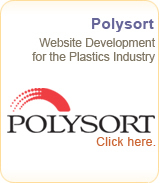
Hunsinger Plastic Extrusions, Inc.
Contact: Steve Wright
20 N. Front St.
Suite #1
Bally, PA 19503
US-Pennsylvania
Phone: 610-845-9111
Fax: 610-845-9113
Back in 1972, when the Hunsinger founding father first turned on the lights, we were a tiny, little operation in the farthest reaches of rural Montgomery County, Pennsylvania.
Today, we've moved to a new location in Berks County, Pennsylvania; we're a little bigger; and we're a whole lot better. Under the stewardship of Steve Wright (click here for profile of peerless leader), we've acquired lots and lots of experience in extruding really weird shapes that the big guys with their multi-million dollar, mass-production presses don't want to touch. And we've solved an awful lot of puzzling problems that the big guys with their yada-yada-yada couldn't begin to solve.
If you want to hear more about all the great things we do, just click here. If you're already convinced, why bother? Just contact us right now....
By Linda Lesko
For Eastern PA Business Journal
For Steve Wright, sales and marketing experience is the key to reviving an old business...even if you don't know anything about the product.
He's proven it at Hunsinger Plastic Extrusions Inc., in East Greenville, a Montgomery County company he bought in November 1992. His philosophy also made his former Northeast Philadelphia business, which made large steel gears for the pulp industry, a success in the late-1980's.
In both cases, Wright's goal was to acquire a struggling business that he could turnaround. "Usually, there's a reason why a business is failing," says Wright. "And in both businesses, they were hurting for business," he adds, recalling Hunsinger employees were painting machinery when he took over.
"I spent most of my working life in sales and marketing for the health care industry. So, I felt if I could sell medical products, I could sell steel gears or plastic products," says this 52-year-old entrepreneur.
To purchase the extrusion company, Wright needed a $300,000 bank loan. But not even a reasonable down payment could mitigate the bank's two major concerns:
Hunsinger had lost money for the past three years, and the prospective owner had no experience with plastics.
Undaunted, Wright secured a year's financing from the former owner. Turning the business into a profitable venture that year, he qualified for a bank loan in 1993.
Today, the single-story, 6,000 square feet building at 1215 Water Street in the industrial park houses an operation that has been running to capacity for the past two years, generating $1 million in sales in 1996 and 1997. Expansion is in the early planning stage, but the three-acre lot can accommodate four times the square footage without zoning problems, explains Wright.
With 10 employees, Wright's company runs three shifts Monday to Friday and some Saturdays. The company's seven extrusion machines produce linear parts, solid or tubular.
The extrusion process begins with plastic pellets fed into a hopper. As they pass into the extruder, the pellets are heated and mixed, while an auger (which has spiral groves for channeling and a sharp end for cutting) moves the softened plastic to the other end. Next, the moldable plastic passes through a die that determines the part's shape. Finally, the part enters the sizer where cold water sets it, Wright explains.
He points out that extrusions may be made with new or recycled, reprocessed plastics, depending on the product's use. Medical grade plastic, for instance, is only processed once. Since the extruding process produces a lot of scrap, Hunsinger regrinds its own, occasionally buying reprocessed material from outside sources.
Prices are influenced by three main factors: Cost of the plastic, time to run the job, size of the part. Prices range from $3 per thousand to $12 per piece. But its's hard to make a run for less than $500 or $1,000, says Wright.
According to Wright, he has retained about 30 to 40 percent of the same customer base that Huntsinger had at the time Wright took over the business.
So, Hunsinger, which was founded circa 1974, has been producing some products for about 24 years - like plastic clips that go on the end of circuit boards and a pipe covering that protects gas pipelines from getting damaged when a bulldozer back fills a hole.
Building one's customer-base means implementing the tried-and-true ideas, as well as using current technology. Therefore, Wright advertises in the Thomas Regional Directory, Thomas Directory and Bell Atlantic Yellow Pages, with about 25 percent of his business generated by 8 to 10 independent sales representatives.
"But right now, most of our leads are coming from our Web site, which we've had for a couple of years," he says. Wright's customer-base ranges from young design engineers from big companies to individuals (some retirees) who have inventions. But generally, "customers have a product and our product is part of that product. And most of our customers last through the life of the product or for their subsequent products," he says.
For example, each year Hunsinger produces millions of mop rollers for Rubbermaid. Other products include sturdy, clear plastic holders for grocery store pricing labels and edging whch prevents glass panels in solar rooms from cracking due to expansion. Currently, the company is making long bumpers that protect the interior of refrigerated boxcars.
Wright's niche, his forte, is meeting the special needs of entrepreneurs. He says many extrusion operations want customers to approach them with details: Knowning which material they want to use, coming with completed drawings, having all specifications spelled out.
"What makes us different from our competitors is that we'll help someone who comes in with only an idea. We'll help make the drawing, choose the plastic, make the custom part, as well as change it as necessaay," he explains.
Peter Schultz, co-owner of Richard Schultz Design in Palm, is a furniture designer/fabricator. The company needed slotted plastic guides to clip into notches on the bottom of its new line of outdoor furniture.
"You can't just make a thing happen right the first time," says Peter Schultz. "Steve is really special in that regard, because he puts a lot of effort into making sure things work."
Schultz, whose business is located a couple of miles from Hunsinger, says he appreciates having a nearby resource like Wright who's willing to work hand-in-hand with a small business, as well as make quality products that are tolerance and color correct.
"And Steve's willing to do it in a very timely way," adds Schultz. Normally, it takes four to eight weeks to get ready for a job. But Wright says he also gets a lot of rush jobs just because he's willing to do them.
In 1996, Wright solved a critical dilemma for a truck manufacturer that affected the installation of the steering column. Within two weeks, he designed and shipped tiny X-shaped clips which fixed the problem. Today, that company orders hundreds of thousands of those nylon clips each year.
Another thing that separates Wright from other extruders is his willingness to use any themoplastic as long as it can be extruded.
"When new materials come out, we take them on," says Wright. In fact, believes he was chosen to make high grade thermoplastic rubber garage door seals for Romarc Corporation because he was willing to experiment with that product.
It was Bob Cretsinger, president of Romarc Corp. in Plumsteadville, who selected Hunsinger for those garage door seals, Because of his longtime business relations with Wright, he knew Wright "is always willing to try different approaches to a problem, to make suggestions, and he's willing to listen to ideas I may have even though I'm not an extruder."
Whether a plastic is expensive ($14 per pound) or difficult to extrude, Wright will try the plastic because "that's what we want this business to be doing," he says.




